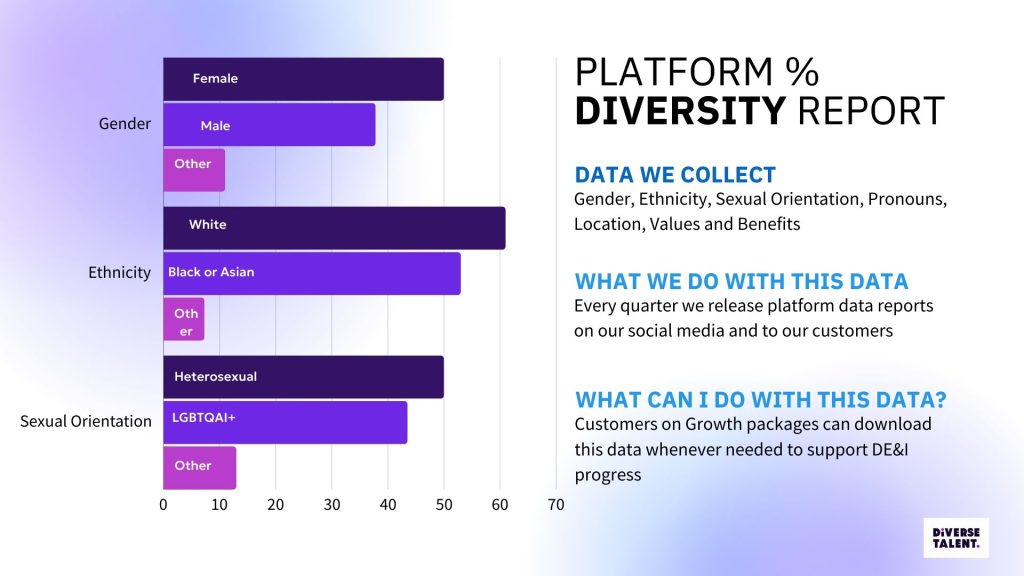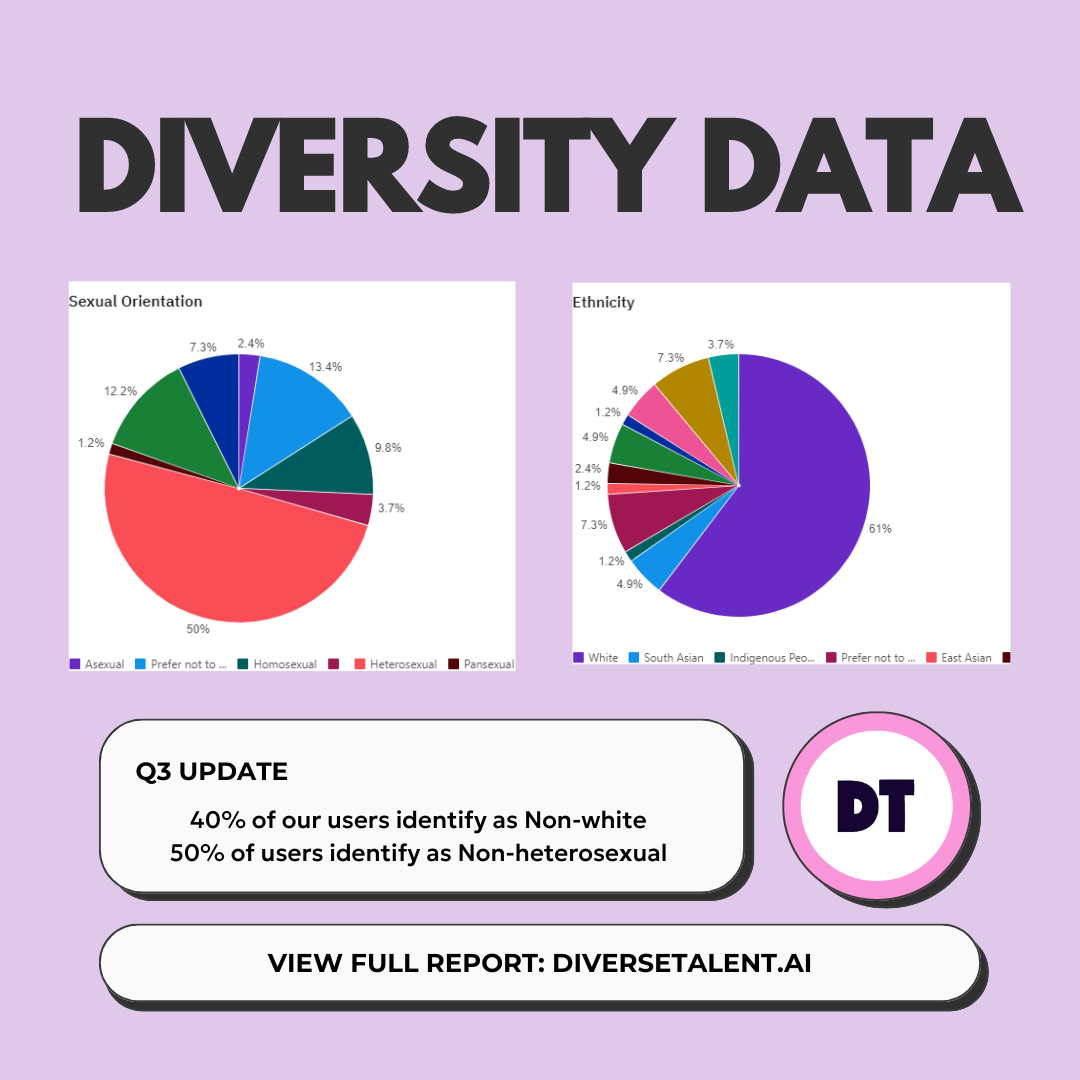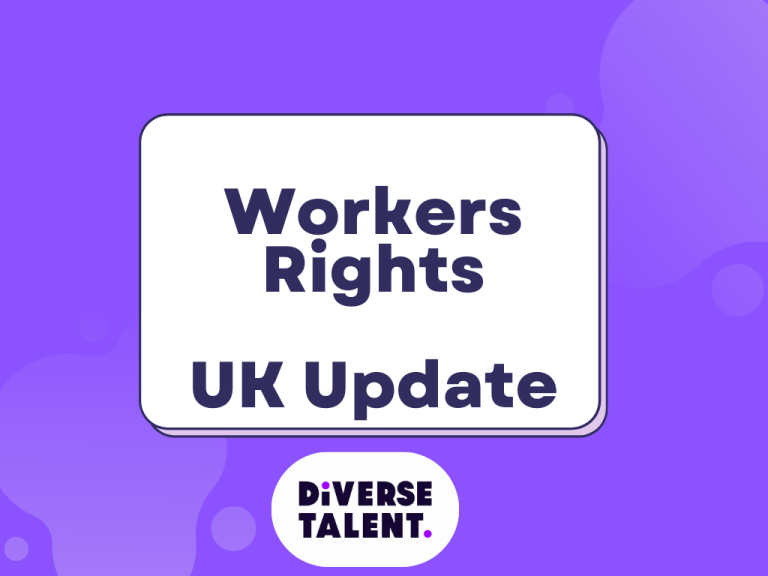At Diversetalent.ai, we believe that fostering a diverse and inclusive workplace starts right at the recruitment stage. It’s more than just filling quotas; it’s about creating an environment where everyone feels valued and respected, regardless of their background.
But to get there, employers need to understand the makeup of their workforce, and that’s where collecting diversity data comes into play.
We collect Diversity Data
When a job seeker creates an account they are given the option to provide their diversity data anonymously, this helps us and employers better understand the demographics using our platform and in turn, we can keep innovating and advising best practices for an inclusive society.
Q3 Diversity Data Report

Gender
Female: 48.8%
Male: 39.3%
Trans / Non-binary / other: 11.9%
Ethnicity
White: 59.5%
S+SE Asian: 21.5%
Hispanic: 7.1%
Multiethnic: 7.1%
Black African: 4.8%
Sexual Orientation
Heterosexual: 51.2%
LGBTQAI+: 48.8%
Preferred Pronouns
She/Her: 48.8%
He/Him: 40.5%
They/Them: 4.8%
Gender OR They/Them: 5%
Here are a few stats that show why this matters:
- Ethnicity: We’ve found that companies with a higher representation of ethnic minorities are more likely to outperform their peers in terms of innovation and market share.
- Gender: Gender-diverse teams are 21% more likely to experience above-average profitability, according to research by McKinsey.
- LGBTQIA+ Representation: Companies that are inclusive of LGBTQIA+ individuals report higher levels of employee satisfaction and retention.
When you have a clear picture of your candidate pool, you can identify any potential biases or gaps in your hiring process. For instance, are you attracting a diverse range of candidates? If not, why? Without data, it’s impossible to answer these questions.
Collecting diversity data also helps employers track their progress over time. Are your diversity initiatives working? Are you moving the needle in terms of gender balance, ethnic diversity, or LGBTQIA+ representation?
And The Law?
In the UK, the Gender Pay Gap reporting legislation requires employers with 250 or more employees to publish data on the pay gap between male and female employees.
Similarly, in Northern Ireland, the Equality Commission has laid out guidelines for monitoring workforce composition across various equality grounds, including race, disability, and sexual orientation. Employers are encouraged to regularly collect and review this data to ensure they are complying with anti-discrimination laws and promoting equality.
Failure to collect and report this data not only risks legal consequences but also sends a negative message about your company’s commitment to diversity and inclusion.
If you would like further information about our Diversity Data or to learn how DiverseTalent.ai can support your DE&I needs contact us directly 👇
028 9600 9618 or email: hello@diversetalent.ai





